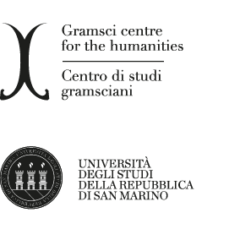To begin a discussion on the digital revolution in the humanities, we asked some questions to our scientific advisors. Their answers will be published in eight issues between now and mid-October. Here, as a second issue, those of Peter Burke and Elisabetta Benigni. Continue reading “The digital revolution seen at close quarters: Peter Burke and Elisabetta Benigni”
The distinction between digitalized text and digital text. Interview with Daniele Fusi.

This is the second part of the interview with philologist Daniele Fusi on the Transkribus platform and the frontiers of electronic text analysis. In the first one, Dr. Fusi told us about his experience as a digital philologist and some programs used in his research field.
In the first part of this interview, Dr. Fusi, you talked about a distinction between digitalized text and digital text. Can you explain it in more detail? Continue reading “The distinction between digitalized text and digital text. Interview with Daniele Fusi.”
Programme 2020 – 2021 of Gramsci centre for the humanities
1. The double header – Gramsci centre for the humanities / Centro di studi gramsciani – is not only a very free presentation of the same content in two languages. It also refers to a double function. On the one hand, the scientific observation of Gramsci’s work, his lecture, his method; on the other hand, research on some of Gramsci’s themes – organization of cultural work; intellectuals; politics and culture… – in their current implications: in new terms. Continue reading “Programme 2020 – 2021 of Gramsci centre for the humanities”
The special history of the ancient Romans
“What is the point of knowing the history of the ancient Romans?”
“I use the right not to answer: if we really had to ask ourselves “what is the point” of a fundamental phase of our historical, political and legal identity, we would be in a very bad way. And anyway, who can say to know all the Roman history? Continue reading “The special history of the ancient Romans”
The digital revolution in the humanities seen at close quarters
To start a discussion on the digital revolution in the humanities, we asked some questions to our scientific advisors. Their answers will be published in eight issues between now and mid-October. Here, as first issue, those of Agnese Accattoli and Davide Bondì. Continue reading “The digital revolution in the humanities seen at close quarters”
Transkribus platform and the frontiers of electronic text analysis: the example of the Prison Notebooks
To electronically transcribe and make handwriting in Europe electronically analysable. These are the functions of the Transkribus platform, one of the initiatives carried out by the READ project, funded by the European Union’s Horizon 2020 Research and Innovation programme. Continue reading “Transkribus platform and the frontiers of electronic text analysis: the example of the Prison Notebooks”
Zerocalcare, Gramsci and Draco Malfoy’s unusual quote
There will certainly be Zerocalcare, in a book on Italian intellectuals of the new millennium, that someone will write sooner or later (the first to be greatly surprised will be him). Continue reading “Zerocalcare, Gramsci and Draco Malfoy’s unusual quote”
Gramsci, Martini, Togliatti and the illegal apparatus of the Pci (1922-1925)
“Of some ‘secret committees’ of the Socialist Party, charged with preparing the revolution, the Italian police was already concerned in 1919. The second congress of the Communist International, in 1920, established that the organization of an illegal party apparatus was an indispensable condition for joining the International. Continue reading “Gramsci, Martini, Togliatti and the illegal apparatus of the Pci (1922-1925)”
Political trials: Gramsci, Giordano Bruno, Nuremberg and the others
«Western legal civilization has invented the “political crime” and, consequently, hypocritically, the “political trials”. This procedure has helped to shape an attitude that has gradually become influential far beyond the West itself. Continue reading “Political trials: Gramsci, Giordano Bruno, Nuremberg and the others”









